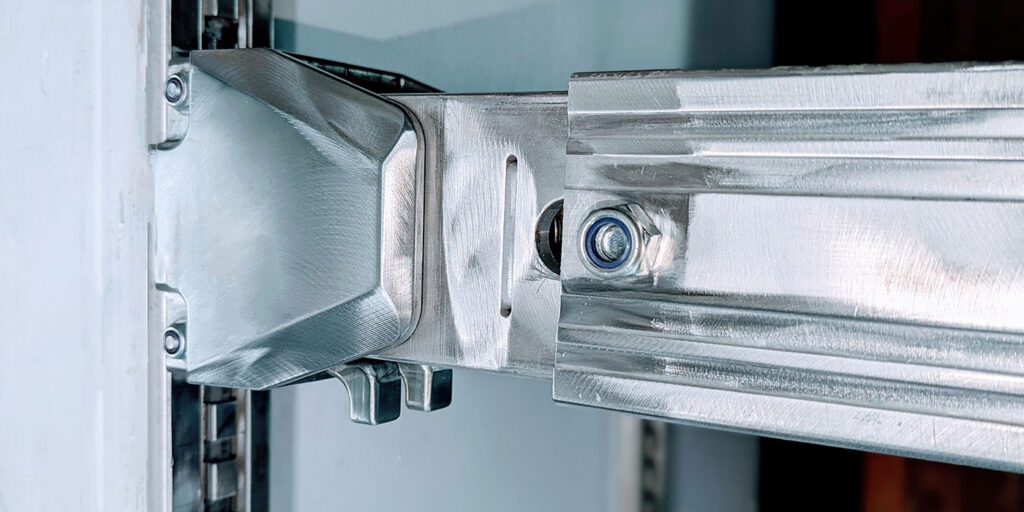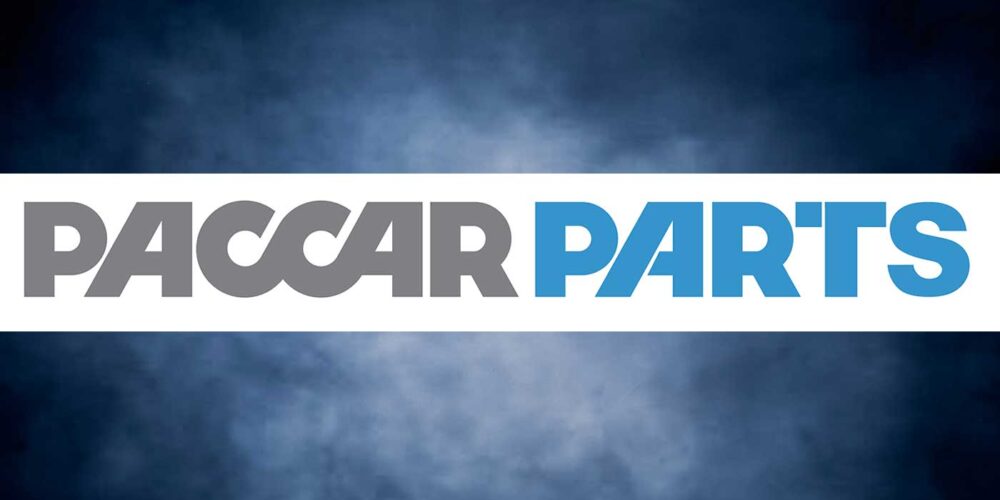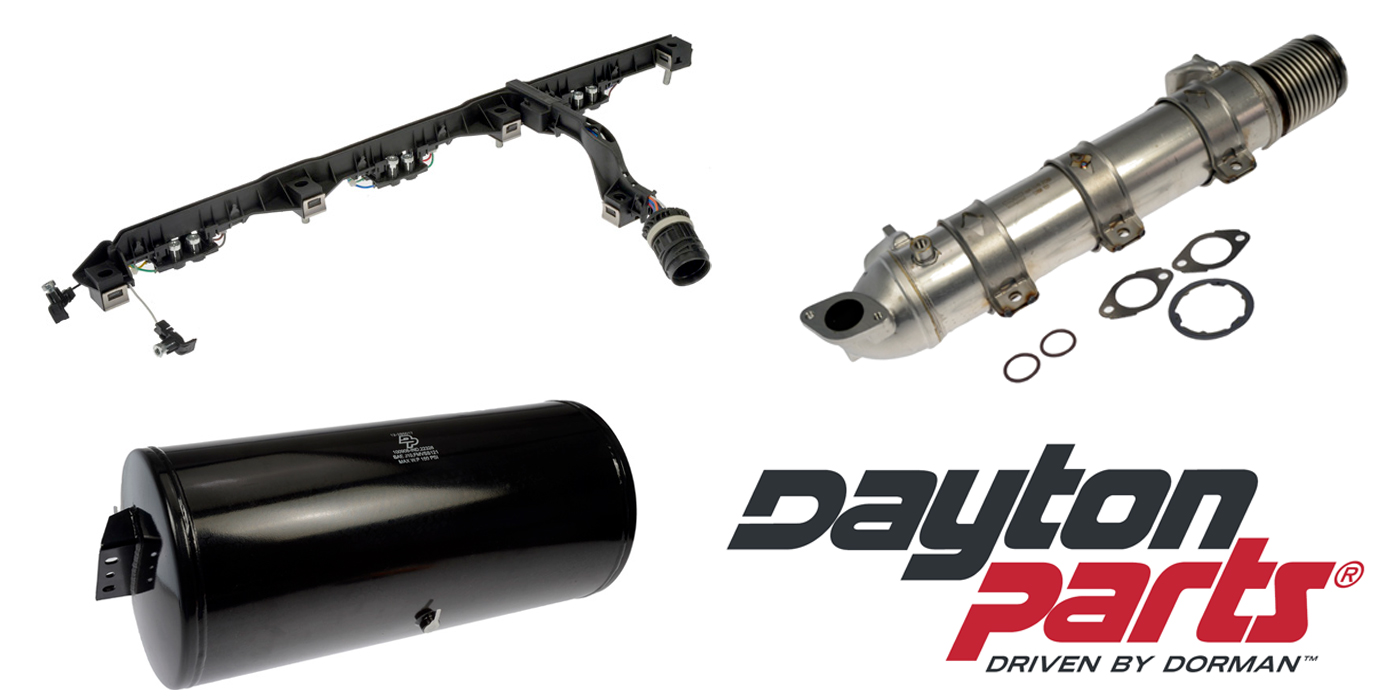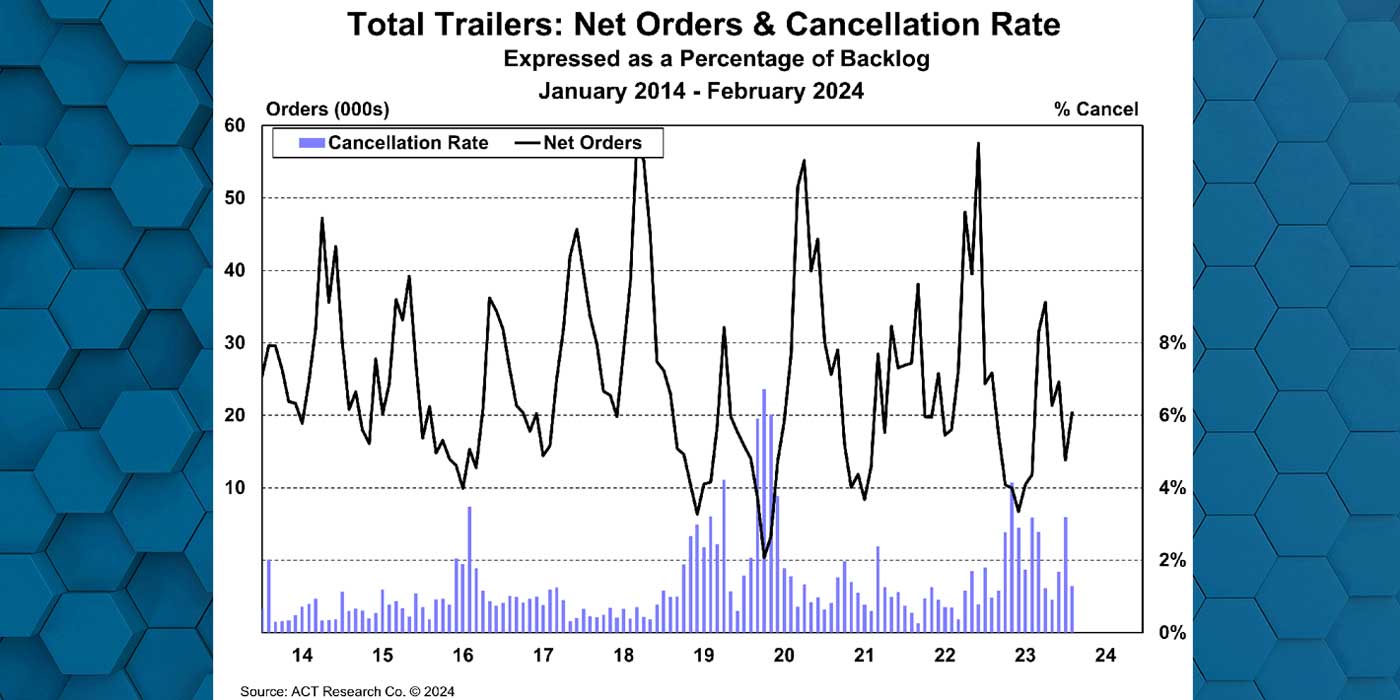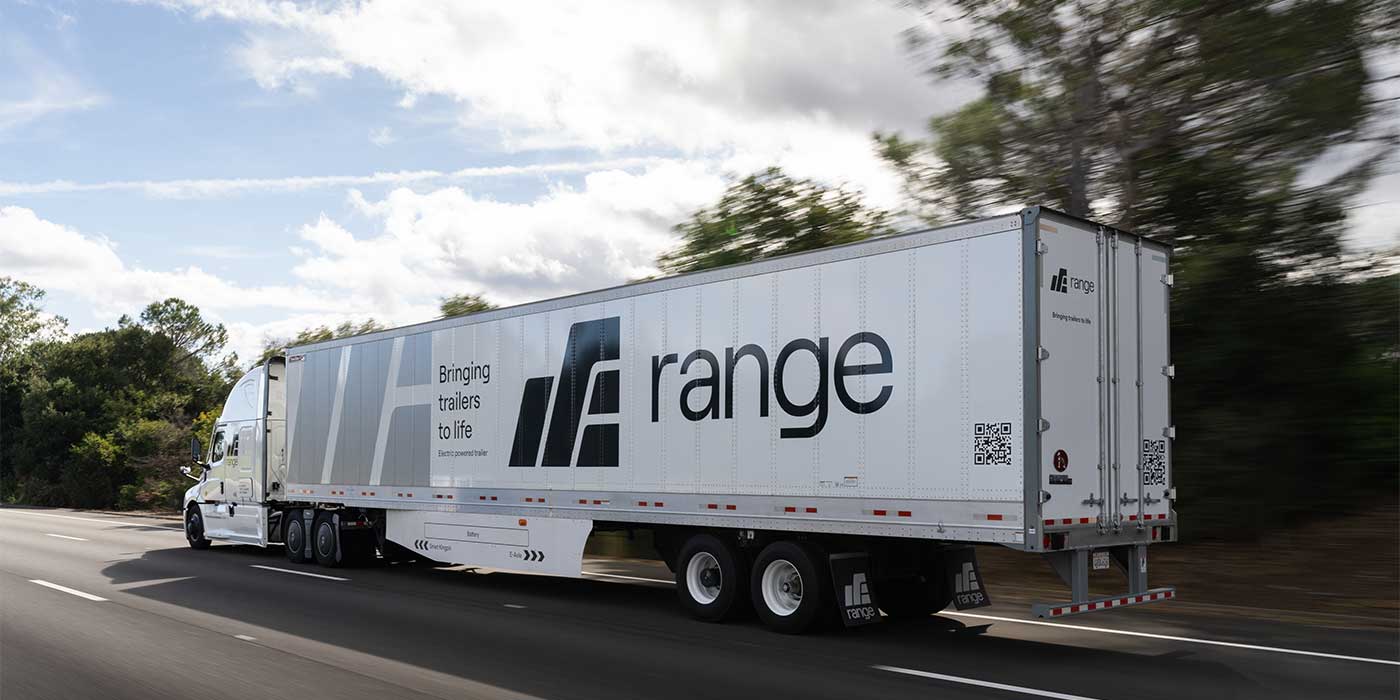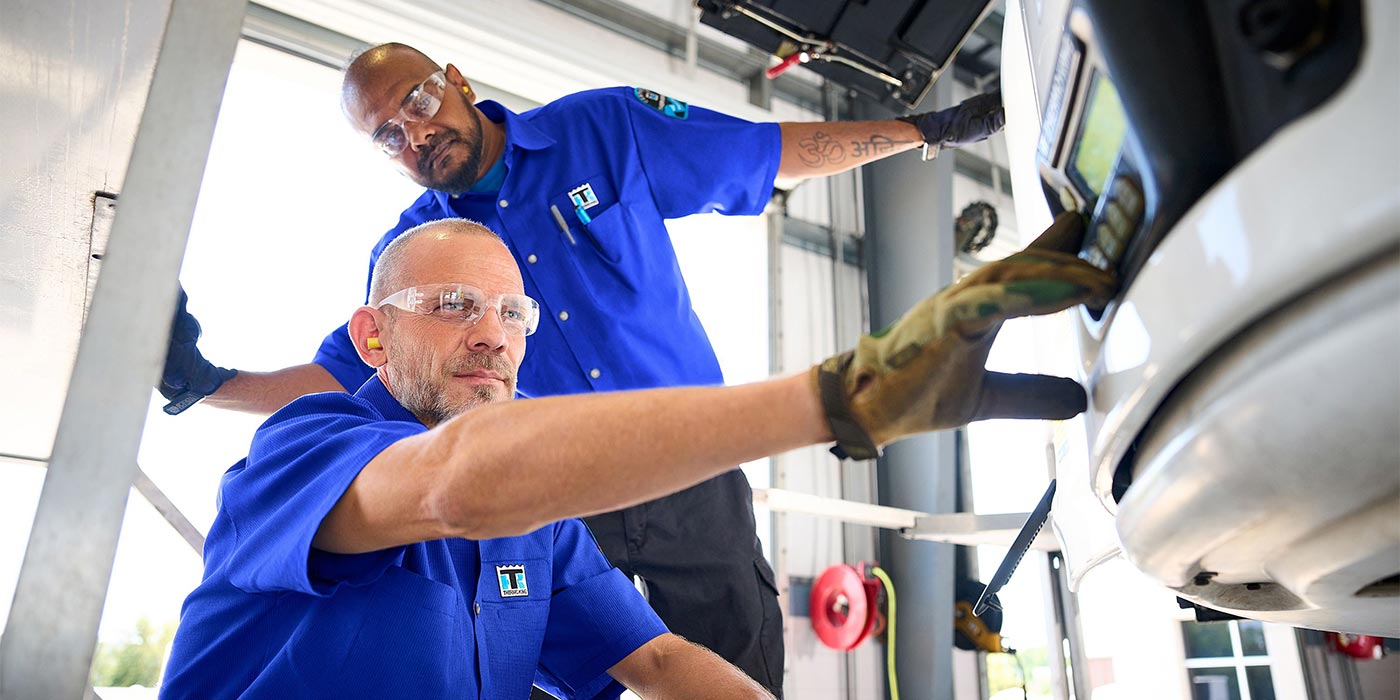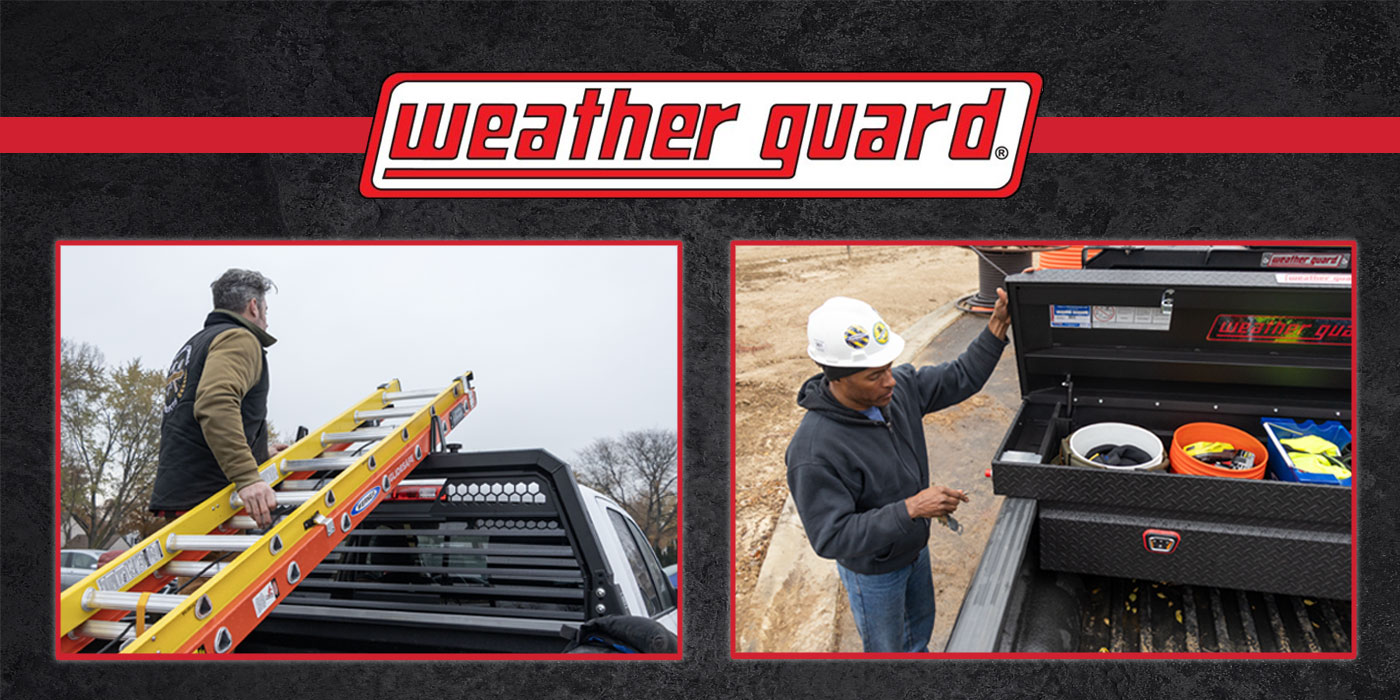Doleco USA announced the Level Deck self-Leveling decking beam. According to the manufacturer, Level Deck doubles efficiency by reducing operator step count by more than half. The Level Deck can be released and adjusted by hand from one side or the other. No special tool is needed, and the beam can be released with a common dock hook, or fifth wheel puller. Once released, the Level Deck beam can be moved freely, asymmetrically and easily up and down its tracks by hand. Once one side is at the desired set height, the opposite side can be slid up or down and automatically self-levels, locking itself into horizontal position.
Level Deck’s foot assemblies are equipped with a spring assist mechanism that essentially counterbalances the beam’s weight, Doleco detailed. As either side of the beam is pulled down, its spring is loaded, allowing the beam will automatically travel to its ceiling height storage position.
Level Deck uses direct contact rolling on Doleco’s LayerLok XP machined aluminum track, design with beveled teeth instead of holes or slots. The Level Deck’s foot assembly glides, tooth in tooth, along the LayerLok track, eliminating the snag points common to other captive systems, Doleco noted. The LayerLok XP track is made of proprietary, patent-pending materials that have a higher strength-to-weight ratio than competing products.
Additionally, Level Deck is tough enough to resist forklift strikes and misuse. Its die-cast nickel aluminum foot assembly minimizes damage from forklift strikes, and its locking mechanism is designed to prevent upward adjustments by forklifts, which are universally discouraged by all captive system manufacturers. The same locking feature prevents inadvertent beam travel, which can occur with some captive systems when loads bounce as vehicles encounter uneven terrain.

